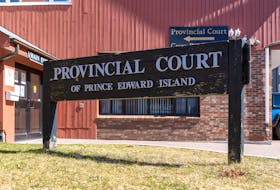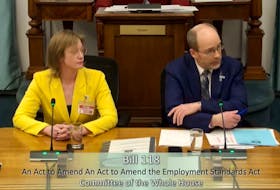CHARLOTTETOWN, P.E.I. — A housing shortage in P.E.I. is not only affecting those who are looking to rent.
Charlottetown real estate broker Joel Ives said the province is currently facing a low supply of homes for purchase.
According to Canadian Real Estate Association statistics released in January, there were 77 new residential listings in P.E.I. for December 2018. That’s a drop of 38.9 per cent from the same month the year before – hitting the lowest December level since 2002.
“That’s been our challenge in the last two years – our supply has been very small,” said Ives, who owns Century 21 Colonial Realty Inc.
Going back a few years, the market wasn’t as robust and there was a lot of inventory, leading to a “very balanced” market, said Ives.
“Now, that stuff has gotten picked off. Even the old stuff that was kind of just hanging around, it was starting to get picked off. It’s really that supply that’s hurting us.”
Ives said a big part of the reason the supply is down is because P.E.I. was not prepared and building new stock when an influx of immigration hit the province.
And the immigrants of today are not only renting, they are buying, he said.
“A numbers game is what it boils down to. P.E.I. hadn’t seen that amount of growth and frankly, it probably took a lot of us by surprise.”
While Ives is in the buyers’ and sellers’ market, he said the supply issue is connected to the rental market as well.
The baby boomers have driven the real estate market for years, and as their lifestyles are once again changing, many are selling their homes and moving into high-end apartments rentals.
While many Islanders look for affordable housing, a lot of the new apartment buildings are being built to accommodate the boomers’ demands, where the rent is between $1,500 and $2,000 per month. A lot of these builds have higher-end flooring and countertops, appliances, elevators and so on, which also drives up the costs.
As in most places, Islanders are drawn to urban settings, and Ives said that when there is a vacancy rate of one per cent or lower, there’s not enough stock to be competitive – a principle that also applies to the rental market.
In November, the Canadian Mortgage and Housing Corporation (CMHC) put the rental vacancy rate in Charlottetown at 0.2 per cent.
According to Alex Forbes, manager of planning and heritage for the city, there were permits granted for 230 apartment units last year, but he said the city can’t guarantee when those will be built.
“(Developers) may or may not have started them. They likely did because the clock starts ticking and they’re paying money, but that doesn’t mean they’re up,” said Forbes, adding the city has “no idea” how many units will be built this year.
“There’s a number of them that have been approved in the past for over a succession of years that are ready to go, and there’ll be a number of new ones that are going to be approved… there is the potential for hundreds (of units) to be created in 2019, but it’s up to the development community to decide to build them.”
Ives said it will be interesting when some new apartments in Charlottetown and Stratford are complete because, as people move out of houses and into the rentals, those homes will then add to the market supply.
“It would be great to see a little more balance because it helps everybody.”









